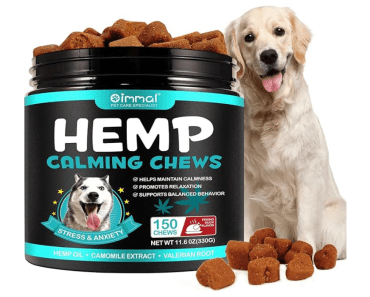Hello there! Have you ever wondered if dogs can enjoy the deliciousness of chestnuts? Well, I’m here to tell you that they absolutely can! However, there are a few things you need to know before offering this tasty treat to your furry friend. Let’s dive deeper into the realm of chestnuts and dogs.
Can Dogs Eat Chestnuts? Yes, they can.
- Chestnuts can be a safe and healthy snack for dogs, if given in the right form.
- Most chestnuts, like sweet chestnuts from the genus Castanea, are safe for dogs to eat.
- However, horse chestnuts (conkers) are toxic and should be avoided.
- Chestnuts can provide nutritional benefits for dogs, such as fiber, potassium, and Omega-3 fatty acids.
- When feeding chestnuts to dogs, it’s important to remove the outer layer, cut them into smaller pieces if needed, and avoid adding salt or unsafe seasonings.
Now that we’ve cleared that up, let’s explore the different types of chestnuts that are safe for dogs.
Types of Chesnuts that are Safe for Dogs
When it comes to feeding chestnuts to our furry friends, it’s essential to know which types are safe for dogs. The most common edible chestnuts for dogs are the sweet chestnuts from the genus Castanea. These chestnuts can be easily identified by their distinct features:
- Pointy Tip with a Little Tuft: Sweet chestnuts have a pointed tip accompanied by a small tuft, adding to their unique appearance.
- Densely Spiked Pods: The chestnut pods are densely covered in spikes, providing further visual identification.
It’s important to avoid giving dogs horse chestnuts. While they may look similar, horse chestnuts are not true chestnuts and are toxic to our canine companions. To differentiate them:
- Rounded and Smooth Nuts: Horse chestnuts have round and smooth nuts, unlike the jagged appearance of sweet chestnuts.
- Sparse Thick Spikes on Pods: The spikes on horse chestnut pods are fewer and thicker compared to the densely covered spikes on sweet chestnut pods.
- Presence of Only One Seed Pod: Horse chestnuts typically have only one seed pod, while sweet chestnuts may have multiple pods in a cluster.
By familiarizing ourselves with these characteristics, we can safely offer dogs the delicious and nutritious sweet chestnuts, while avoiding any risks associated with horse chestnuts.
Are Chestnuts Good for Dogs?
Yes, chestnuts can be a good food choice for dogs in moderation. They offer a range of nutritional benefits that can contribute to your dog’s overall health and well-being.
Nutritional Benefits
Chestnuts are low in fat and calories, making them a healthier alternative to other treats. They are also high in fiber, which can support a healthy digestive system in dogs. Additionally, chestnuts are rich in potassium, an essential mineral that plays a crucial role in maintaining proper heart function and blood pressure regulation.
Furthermore, chestnuts contain Omega-3 fatty acids, which are known for their anti-inflammatory properties. These fatty acids can benefit not only your dog’s skin and coat but also their joint health and mobility.
Feeding Recommendations
While chestnuts offer several health benefits, it’s important to keep in mind that they should not be a staple in your dog’s diet. Treats like chestnuts should only make up a small portion of their overall food intake to ensure a balanced diet.
When feeding chestnuts to your dog, avoid candied, heavily salted, or chocolate-covered chestnuts, as these can be harmful to dogs. Stick to offering plain, raw or cooked chestnuts that are free from added sugars, salts, or seasonings.
Remember to remove the tough outer layer of the chestnuts and cut them into smaller, bite-sized pieces for easier consumption, especially for smaller dogs or those prone to swallowing food whole. Dogs can also enjoy canned chestnut purees as an alternative option.
Always consult with your veterinarian before introducing new foods into your dog’s diet, including chestnuts, to ensure they are compatible with your dog’s specific dietary needs and any existing health conditions they may have.

How to Feed Chestnuts to Dogs
Dogs can safely consume raw chestnuts, but it’s crucial to remove the tough brown outer layer before offering them to your furry friend. This helps prevent any potential difficulties they may have while trying to chew or digest the chestnuts. Additionally, if your dog tends to swallow food whole, it may be necessary to cut the raw chestnuts into smaller, more manageable pieces before feeding them to your canine companion.
If you prefer to prepare the chestnuts in alternative ways, boiling and roasting are also safe methods for dogs. Boiling the chestnuts until they become soft can make them easier for your dog to chew and consume. Roasting the chestnuts adds a delicious flavor that your dog may thoroughly enjoy.
It’s important to note that when preparing chestnuts for dogs, you should avoid adding salt or any unsafe spices. These additional ingredients could potentially be harmful to your dog’s health. The simple and natural taste of chestnuts alone is enough to satisfy their canine taste buds.
Canned chestnut purees can be a convenient and suitable option for feeding chestnuts to dogs. However, if possible, fresh chestnuts are preferred as they provide a more authentic and nutritious experience for your pet.

Feeding Chestnuts to Dogs: Tips
- Remove the tough brown outer layer before offering chestnuts to your dog.
- Cut the chestnuts into smaller pieces if your dog tends to swallow food whole.
- Boil or roast the chestnuts as alternative preparation methods.
- Avoid adding salt or unsafe spices when preparing chestnuts for dogs.
- Canned chestnut purees can be used, but fresh chestnuts are preferred.
Conclusion
Dogs can safely eat chestnuts, but it’s crucial to choose the right type and ensure proper preparation. Sweet chestnuts from the genus Castanea are dog-friendly and can be a healthy occasional treat. However, it’s essential to avoid horse chestnuts as they are toxic to dogs.
Feeding chestnuts to dogs can provide them with nutritional benefits. Chestnuts are rich in fiber, potassium, and Omega-3 fatty acids, which can support digestive health, cardiovascular function, and promote healthy skin and joints.
When offering chestnuts to dogs, it is recommended to remove the outer layer and cut them into smaller pieces if necessary. It’s also important to avoid adding any salt or unsafe seasonings. Fresh chestnuts are preferred, but canned chestnut purees can also be a suitable option. Remember to feed chestnuts to dogs in moderation and as part of a balanced diet.






